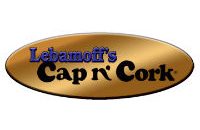Game-Changing Features of ERP Software for a Retail Store: What to Look For
Given how competitive the retail world has become post-pandemic, the current times demand leveraging every possible advantage point to establish business competitiveness. This applies to both brick-and-mortar shops and eCommerce websites.
Implementing a feature-rich ERP software tailored for retail steps here as a transformative tool for retailers looking to grow. A retail-business-oriented ERP helps to streamline different retailing business processes and unify data and various functions across retail stores. It also doubles as an excellent intervention for improving customer shopping experiences, enhancing business intelligence, and operating efficiently.
But how do you pick the best ERP software for your retail business? In this blog, we explore some game-changing features of ERP that can elevate your retail operations and improve customer satisfaction to foster loyalty.
What are the must-have ERP features for retail businesses?
While there are abundant options for ERP software, it’s best to look out for the following features for your retail business:
- Seamless integration and scalability
Any ERP software you choose for your retail business must integrate seamlessly with your existing workflow and provide smooth communication pathways. In other words, it must ensure that all parts of your retail business – from head office operations, accounting, and inventory management to customer service and supply chain management- operate harmoniously without any communication gaps. At the same time, the ERP system must also be scalable to support you as your retail business expands without requiring constant system overhauls.
- Advanced inventory management
You’ll agree that effective inventory management is crucial for retail success. In that vein, looking for an ERP that offers real-time inventory tracking, automated stock replenishment, and demand forecasting capabilities is best. These features help to maintain optimized inventory levels. Moreover, let’s presume the tool presents a ready snapshot of the stock available. In that case, it can also equip your customer service team on the retail floor to promptly help customers with stock information. In larger stores, you can use this to extend self-service for customers scanning the product’s barcode to get information at their fingertips. Increased transparency with this can help you streamline your inventory management processes while boosting customer satisfaction and loyalty.
Check out Magstar’s advanced inventory management ERP features here.
- End-to-end customer visibility
Today’s customers expect a seamless shopping experience, whether online or in-store. Specifically, they prefer going to retailers who can provide them with personalized experiences. According to research, 65% of customers say they’ll remain loyal to a retailer offering a more customized experience.
Thus, it’s best if your ERP software equips you with the tools and visibility you need to meet such customer expectations. For instance, integrated CRM (Customer Relationship Management) capabilities in your ERP can enable you to deliver personalized customer interactions without adding another tool.
- Point of sale functionalities
Introducing intelligence at the point of sale with enterprise resource planning software can be another game-changer in boosting retail sales and customer satisfaction. Look out for an ERP with features that help cashiers instantly track companion items or related items currently on sale while they bill customers. This will help you perform excellently with cross-selling opportunities and boost sales. Another helpful POS feature to look for is the ability to print discount coupons directly onto customers’ receipts while billing. These coupons could depend on sales or lifetime value and can help you massively boost sales.
- Data Intelligence
Advanced analytics, real-time reporting, and customizable dashboards are excellent features to have in your ERP. It’s best to look for ERP software that shares data intelligence on operations, daily merchandise, item performance analysis, etc. If it documents this information neatly and provides precise insights into sales trends across your stores and customer behavior, you can also make the right operational decisions timely. This can help boost your sales and bottom lines.
- Supply chain management support
Effective supply chain management is essential for minimizing costs and maximizing retail efficiency. Your ERP system must offer tools for simplifying and managing your supply chain. This must include supplier management, logistics coordination, and procurement automation. This business intelligence is necessary to adjust your product distribution according to the demand levels, stock up on what’s most likely to sell, and avoid shelf space wastage across stores. The result – is a smooth and efficient supply chain, reduced delays, and improved ROI.
- Comprehensive financial management
A robust ERP system also extends comprehensive accounting and financial management capabilities across your retail chain without requiring repetitive and labor-intensive paperwork. This includes real-time financial reporting of your sales, accounts receivable and payable, budgeting, and forecasting, and compliance with regulatory standards. Ensuring these features are present is essential to maintaining sound financial health, making informed decisions, and ensuring transparency across your organization.
- User-friendliness with mobile accessibility
Last but not least, in an increasingly mobile world, choosing a user-friendly ERP system that also offers mobile accessibility is crucial. With it, you can enable your team to access critical data easily through intuitive dashboards, customizable views, and easy access to essential functions from anywhere.
For instance, if a salesperson on the shop floor has easy mobile accessibility to your ERP, they can easily fetch data into stock and answer a related customer query instantly without leaving their side. This can help keep the customer engaged and leave the store with their issue addressed. According to a survey, over half of consumers interviewed shared they’ll return to a brand that offers a positive shopping experience online or in-store.
Bottom Line: Picking a suitable ERP can set you up for retail success
RECENT POSTS
 Out-of-the-Box vs. Custom vs. Hybrid ERP Software – What’s a Good Fit for My Retail Business?Buying an Enterprise Resource Planning (ERP) system for a [...]
Out-of-the-Box vs. Custom vs. Hybrid ERP Software – What’s a Good Fit for My Retail Business?Buying an Enterprise Resource Planning (ERP) system for a [...] Cap N’ Cork Implements Magstar Total Retail Software to Manage Its 15 StoresMagstar Inc. is proud to announce that Cap N’ [...]
Cap N’ Cork Implements Magstar Total Retail Software to Manage Its 15 StoresMagstar Inc. is proud to announce that Cap N’ [...] The Benefits of Perpetual Inventory Accounting for Midsized RetailersThe impact of investing in a software system with [...]
The Benefits of Perpetual Inventory Accounting for Midsized RetailersThe impact of investing in a software system with [...]